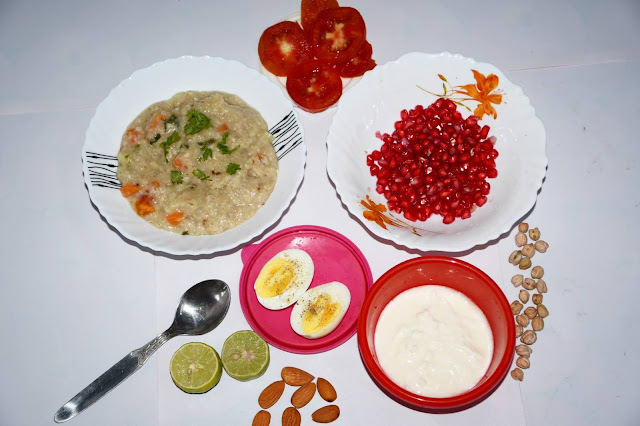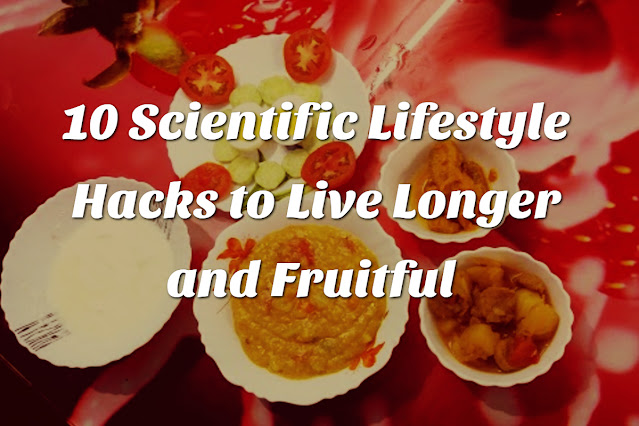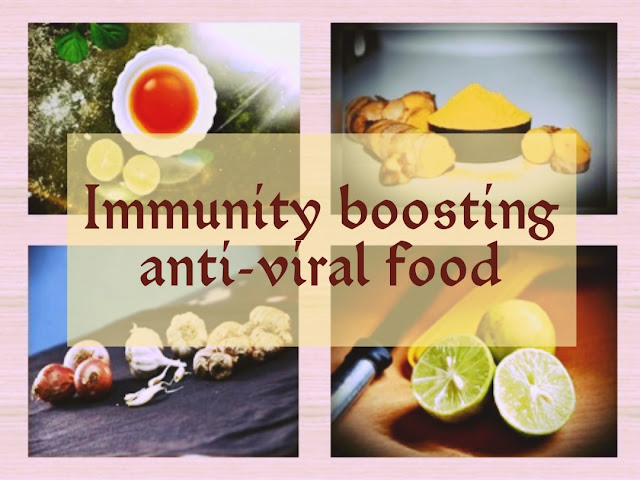Lifestyle management for Polycystic ovary syndrome (PCOS)
Polycystic
ovary syndrome or PCOS is a very common health problem now a days. It may be
seen on 1 out of 10 woman in their childbearing age [1], even I have found
many of my friends, seniors or juniors during my ten years of hostel life
to bear it.
About
PCOS
In
this disease, overproduction of androgens (male hormone, testosterone) from the
ovary occurs rapidly and on the contrary lac of estrogen helps to form multiple cysts in single or both ovary.
Body’s regular ovulation hampered, the eggs can’t release properly, thence it
swell and cluster around the ovary forming cyst [2].
Those
who have it please don’t take it very lightly, because it may lead to serious
consequences like diabetes, cardiovascular problem, high blood pressure, increased
risk of endometrial cancer and even depression.
Hormonal
imbalance which leads to irregular, abnormal and heavy menstruation, absence of
menstruation, obesity, dark patches in skin, unwanted facial hair, hair loss,
joint pain and even infertility [3].
Many
research has found that some types of diet can ease the problem if properly
maintained.
I got some requests to talk about this topic in my blog, so, today’s article
brings you the do’s and don’ts regarding your food selection and some sorts of
your daily lifestyle pertaining to PCOS.
It
is treatable and seems like proper diet is a key point of treatment. So, try to
indulge on some expert recommended food items which can help you to manage the
symptoms of it.
How it occurs
Insulin
can help us to degrade sugars to energy, but, if your insulin production is not
up to the mark then your blood glucose level can rise and if you are insulin
resistant then you can’t utilize produced insulin, then your body try to
produce more insulin which send signals to the ovaries to produce more
androgens like testosterone, then you are susceptible to get the problem [4].
How
does diet helps to manage PCOS?
Research
suggests that diet can help you to manage some problems related to PCOS. About
80% patients are overweight or tend to be with excess belly fat.
You
should intake some food items and avoid a few, suppose you’re unknowingly
continue to intake a kind of food which can worsen your system, so, better you
get an idea about what to eat or not.
Weight
management and insulin production and resistance are the integral factors related to PCOS.
Any food with high glycemic index can dis-balance the insulin and other hormone
level. If you cant check those items you may develop diabetes in your 40s or
before as it likely to happen in more than 50% woman.
Previously
discussed insulin resistance may occur if you have a high BMI (Body Mass Index)
than normal. Continuous intake of sugary, starchy foods can worsen the problem
and you may feel more difficulty to loose weight as well as to control PCOS [5].
Appropriate
diet can help you to loss weight and as well as to maintain the insulin level of
your body in a good manner.
To
eat
You
should intake all natural, unprocessed, high fiber, protein and
anti-inflammatory food that can help you to manage the problem. As much as you
can try to add following items to your daily diet based on availability [6].
High
fiber food:
Cauliflower, Broccoli, sprouts,
lettuce
Green and red bell peppers, beans,
sweet potatoes, pumpkin
Lentils, chickpeas seeds (flax,
sunflower)
Almonds, walnuts, pistachios
Whole grains (brown rice, whole wheat,
whole oats, quinoa)
Proteinaceous food:
Chicken and turkey
Fatty fish (shrimp, salmon, sardines,
tuna, mackerel, cod)
Anti-inflammatory antioxidant rich food:
Tomatoes, spinach
Olive oil
Strawberries, raspberries, blueberries,
red grapes, avocado, coconut
Turmeric and cinnamon
Dark chocolate in moderation
Not
to eat
If
you are a great lover of luchi/puri (bengali deep fried puffy bread), noodles, cake, pastries then it is very
tough time for you. Foods with high refined carbohydrates and inflammatory
foods may increase the insulin resistance of your body and cause inflammation. So,
better to restrict yourself to not to take a bite from your lovable cream cake [7].
Following
food items should be avoided strictly or partially:
White bread, muffins, cake, pastries,
cookies, sweets
Sugary desserts, yogurt with added sugar
Sugary beverages (fruit juice, energy
drink, soda)
White rice, white flour, semolina,
cornflakes
Fried or fast food/Junk food, pizza,
pasta, french fries
Processed meat (hot dog, sausages,
hamburgers)
Processed cheese
Excess red meat and pork
Alcohol
Some lifestyle hacks to manage PCOS
I have heard from different medical people
that PCOS is a bit of lifestyle disease. Different research are going on which
can prove that a healthy lifestyle change may help to manage the symptoms of
PCOS [8]. Many people who has suffered from this disease should get some benefit by
combining the proper diet and some changes in their lifestyle. Those benefits
are more regular period, improved insulin metabolism, androgen hormone
reduction, decreasing unpleasant hair growth and weight loss [9].
If you want to get rid of PCOS, weight
management is the primary criteria you have to achieve. Choose a proactive
lifestyle over the lazy one. If you exercise regularly it can help to reduce
insulin resistance. 30 minutes of exercise for 5 days in a week is acceptable [10].
Along with the exercise you should
remain stress free, get adequate sleep and don’t forget to make time for relax.
Yoga and meditation is very good option also.
Don’t be depressed, try to make a
healthy habit from today, and, of course, live happily, stay happily.
“When you are tempted to give up,
your breakthrough is probably just around the corner.”- Joyee Meyer
## All the photographs used in this article are self-captured and hence all rights reserved to ConScience.












Very lucid presentation. A must read for all girls.
ReplyDeleteThank you very much. 😊
DeleteGreat information...useful guidance....Thank you Mam..🙂🙂
ReplyDeleteThank you very much .. 😊
DeleteNice explanation about consequences, prevention and lifestyle hacks to manage PCOS.
ReplyDeleteVery well explained and much helpful ...a must read 👏👏
ReplyDeleteThis information is very helpful for girl ...and thank you ...
ReplyDeleteMost welcome.
DeleteThank you very much.....nicely explained...thanks
ReplyDeleteMost welcome.
DeleteNice explanation maam
ReplyDeleteThank you.
Delete